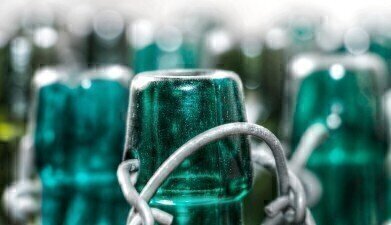Business News
Glass vs Plastic - Which Bottles Are Worse?
Feb 13 2019
A recent surge in mainstream awareness over the pollution caused by single-use plastics has led to a decline in sales of plastic drinks bottles. That slump has been accompanied by a concurrent hike in the number of glass bottles being bought, which are often seen as more environmentally-friendly and trendy to boot.
The world’s biggest drinks manufacturer, Coca Cola, has confirmed those statistics by revealing that it has enjoyed a 14% increase in sales of glass bottles all over the globe in the last 12 months. However, Coca Cola has suggested that the shift may not be entirely good news since it’s far from certain that glass is actually better than plastic from an environmental point of view.
The case for glass
There are several reasons why glass is viewed as more sustainable than plastic. For starters, it’s far more durable and can last for many more years, making it a good choice for those looking for a reusable container for their liquids. It can also be quickly and easily cleaned and sterilised in boiling water, enhancing its reusable properties.
Furthermore, glass does not contain any of the potentially harmful chemicals which some plastic bottles do. Many single-use plastic bottles still contain bisphenol A (BPA), which is believed to be responsible for disruption of natural hormones in the body. Finally, glass lends itself well to recycling, further boosting its environmental credentials.
The case for plastic
The good news for plastic is that it too can easily be recycled. The biggest problems with single-use plastics come when bottles are thrown into landfill or, worse, the ocean, and biodegrade into highly damaging microplastics. These tiny substances endure in the atmosphere for many years and can disrupt ecosystems and infiltrate food chains, having potentially huge ramifications even for humans.
But as long as plastic is responsibly recycled, this problem evaporates. Moreover, the process it takes to create a plastic bottle is far less intense than that which goes into the production of its glass counterpart, meaning that plastic has a far smaller carbon footprint than glass. Carbon, along with the methane emissions from agriculture and dairy farming, is one of the biggest contributors to global warming.
Reducing, reusing and recycling whichever material you prefer
In acknowledging the heavy carbon footprint of glass, the Coca Cola spokesman was quick to point out that it is more important to practice sustainable habits than favour one material over the other. “We offer our drinks in a wide range of packing formats including plastic bottles, glass bottles and aluminium cans,” he explained. “All of the packaging materials we use are 100% recyclable.”
The new UK Plastics Pact, introduced by the government last year, aims to eradicate all unnecessary single-use plastic commodities by 2025. Meanwhile, recycling glass has been made easy by many supermarkets and stores, which offer cash incentives or in-store vouchers for customers who bring back their bottles after consumption.
Digital Edition
AET 28.3 September 2024
September 2024
Business News - ENVEA announces acquisition of APAQ Group - SICK and Endress+Hauser sign strategic partnership - Efforts to curb gas flaring intensify amid environmental concerns Air Monito...
View all digital editions
Events
WEATHER • CLIMATE • WATER / EARTH OBSERVATIONS / GREEN ECONOMY
Oct 29 2024 St. Petersburg, Russia
Oct 30 2024 Hong Kong
Nov 05 2024 Toronto, Canada
Nov 05 2024 Rimini, Italy
Nov 06 2024 Ho Chi Minh City, Vietnam



















